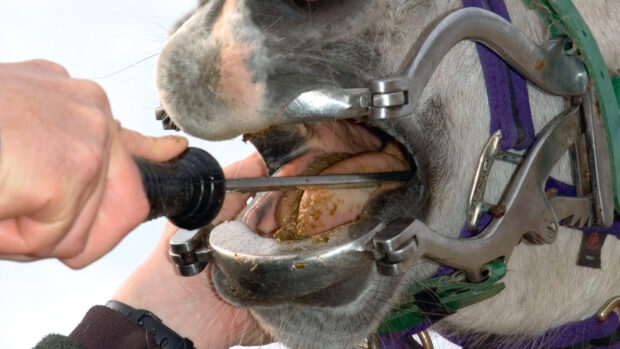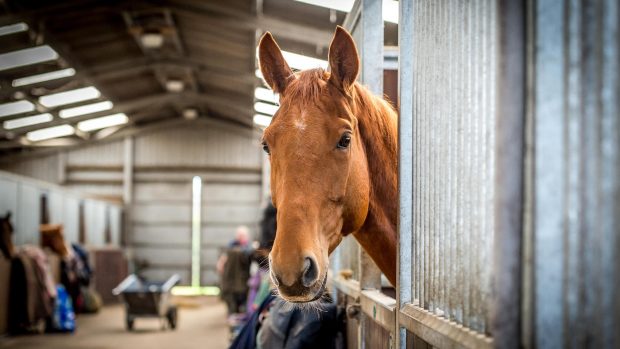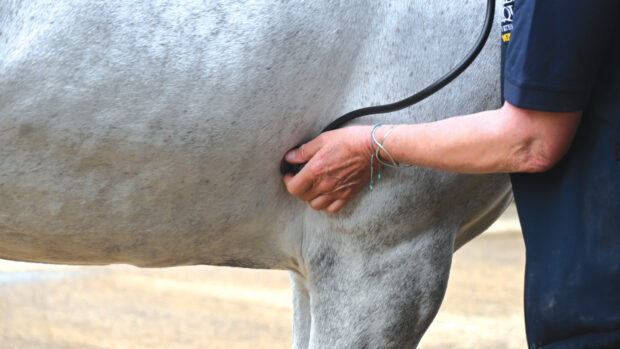Pre-purchase vettings, breeding services and castration may continue during lockdown in order to support horse welfare.
In guidance released last week, the British Equine Veterinary Association (BEVA) stated that these are “not normal times” and it is not “business as usual”, but equine veterinary services cannot reasonably be provided without travel, so vets should continue to travel to their workplace (hospital or keepers’ premises).
“BEVA recognises that equine vets play an essential role in supporting the UK horse sector (an £8.5bn industry) and that their role is no less necessary than that of nannies, cleaners or tradespeople,” read the guidance.
“Many equine veterinary services can take place outside, and non-emergency veterinary activities can, with appropriate facilities, be performed in a Covid-safe fashion (following a risk assessment and appropriate mitigations to minimise the risk).”
BEVA considers that to comply with Government guidance, vets are bound to provide veterinary services in support of both equine welfare and the UK horse industry.
“This means that, where a risk assessment has provided a ‘Covid-safe’ way of working, vets should be able to carry out work that is essential to support horse welfare and the horse industry, despite the fact that it may not be considered essential to prevent immediate suffering,” it read.
Examples of these situations include vets attending race meetings, providing services for breeding, carrying out pre-purchase examinations for horse sales, and performing castrations.
“Breeding is a significant industry that has not been required to close by the Government,” read the guidance, adding that preventing veterinary involvement in breeding would either compromise welfare or fail to support the breeding sector.
“Castration is, given the structure of the industry, necessary to protect horses, protect humans and minimise inappropriate and unwanted pregnancies. Stopping castration will compromise animal welfare.”
Article continued below…

Coronavirus Q&A: horse riders, businesses and employees — all you need to know
H&H has put together a Q&A to help with some of the questions those living and working in the equestrian

‘A cheer went up as they arrived’: racecourses and showgrounds serving as Covid vaccination centres
British racecourses have joined the list of vaccination centres rolling out the Covid-19 vaccines

Subscribe to Horse & Hound magazine today – and enjoy unlimited website access all year round
BEVA added that horse sales are an important part of the industry which are allowed to continue under Government guidance.
“Pre-purchase examinations are an essential part of the sales process. Stopping veterinary involvement in horse sales will compromise animal welfare with horses left unsold and sellers unable to look after unsold animals and it will stop horse sales (fail to support the sector),” read the guidance.
“BEVA is of the opinion that any guidance which arbitrarily blocks essential veterinary activities in support of the horse industry would compromise equine welfare and go against Government guidance on supporting sectors.”
Horse & Hound magazine, out every Thursday, is packed with all the latest news and reports, as well as interviews, specials, nostalgia, vet and training advice. Find how you can enjoy the magazine delivered to your door every week, plus options to upgrade to access our H&H Plus online service which brings you breaking news as it happens as well as other benefits.




